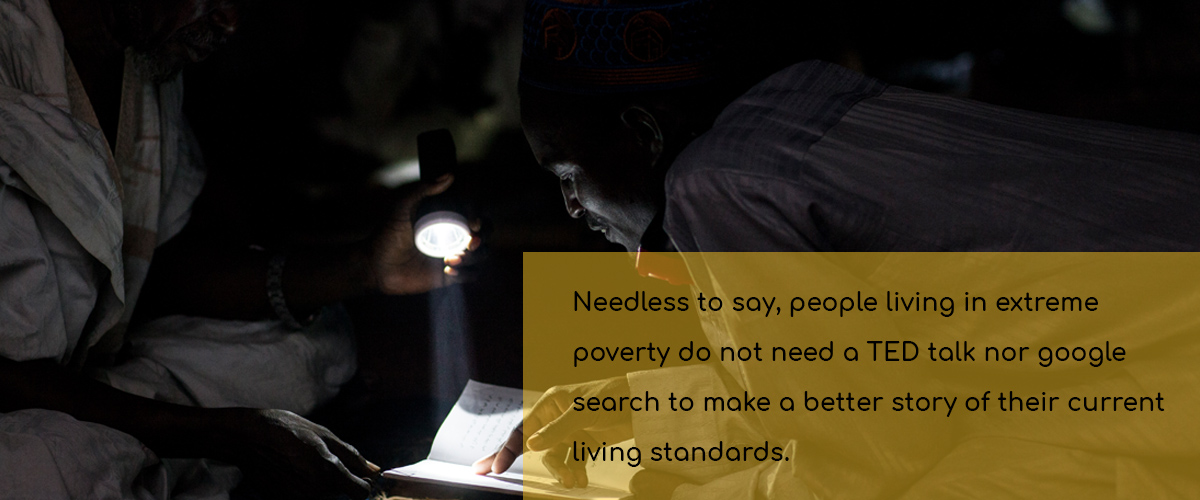
If you are reading this article, odds are you are on the upside of life. You have access to the things that are considered basic: the internet, electricity/energy, an internet-enabled device and, of course, the freedom to access the internet. Talking about freedom and access, 56 percent of the world’s population does not have access to the internet. This, in some cases, is largely due to prevailing poverty and the lack of infrastructure while in about a dozen countries, lack of access to internet calls for human rights protests and public agitations almost at a comparable scale to that of the civil rights movement
56 percent of the world’s population does not have access to the internet.
Access is everything! Think about a time you saw something for the first time and it expanded your outlook or improved your understanding of the world, a time where you got information that enabled you to make a superior decision, a time you got an invaluable insight to a pressing problem from a book or TED talk, a time you met someone outside your existing circle and forged a relationship that helped you grow your circle of influence, a time you had an experience that stretched your limits of possibility, cast your mind back to your first google search and I’m sure you by now see why access is everything.
Needless to say, people living in extreme poverty do not need a TED talk nor google search to make a better story of their current living standards. What they yearn for are the basic things that aid human existence. I will caution that basic here should not be interpreted as money; for too long we have paid attention to the things poor people lack access to (e.g. money, food etc.) without giving an equal amount of attention to their means of accessing these things. It will seem almost logical that the means or ability to get a thing holds the key to how much of that thing can be attained but this sure isn’t the way this problem is scoped — A classic case of cognitive dissonance where one thinks an intense focus on the “what” will create the “how”.

Millions of people live in proximity to the resources they require to escape poverty but they still somehow manage to be trapped not as a result of their own doing but due to factors they just can’t seem to impact. When it comes to the narrative on the high poverty numbers in Africa and the perception of the continent as a (resource) rich continent, professionals in the field of Development are quick to highlight that ‘resource-rich’ and ‘prosperous’ maybe two peas in a pod but are different. Although Africa sits on vast resources; 30% of the world’s known mineral reserves, 12% of the world’s oil reserves, 40 per cent of the world’s gold, and 65% of the world’s arable land, almost 50% of its population live on less than $1.25 per day. This makes the point that poverty is not the result of resource constraint but access to the means for creating broad-based prosperity.
30% of the world’s known mineral reserves, 12% of the world’s oil
reserves, 40 per cent of the world’s gold, and 65% of the world’s arable land, almost 50% of its population live on less than $1.25 per day.
For context, I will work with the simple definition of access being “the means, ability, permission or opportunity to advance, obtain or use something that can cause an increase by addition.” I think this definition highlights the pitfalls that may have limited us from definitively bridging the access gap and by extension, ending poverty. Unlocking massive scale prosperity will likely not be the result of economic aid, politically driven wealth distribution machinations or the best intended government policies and schemes that include safety nets, cash transfers and handouts but on the allocation of the same resources to creating the means for those who are underserved to access the factors vital to productivity and wealth creation such as education, nutrition, clean energy, affordable healthcare, and opportunities that allow them to participate in free markets.
My unpopular belief is that economic aid is hardly a sustainable solution to poverty. If we think of poor people as unserved and underserved owing to their lack of access to opportunities and infrastructure, then, we are able to shift our mindset from absolutely focusing on giving handouts, to a better frame of context where we build the innovative solutions that will help them leapfrog the access barriers that have kept them trapped at the bottom for so long. This is the essence of access.